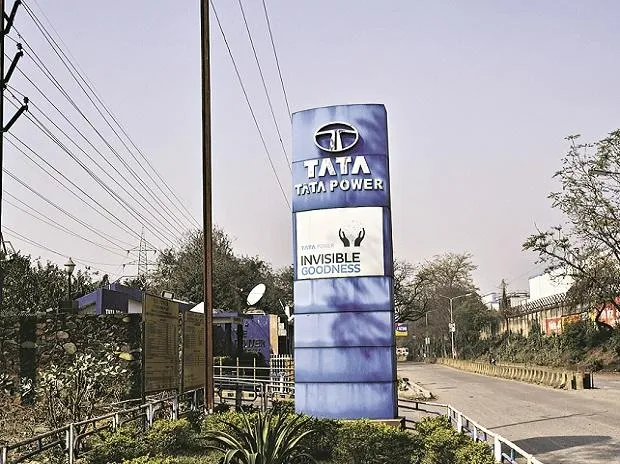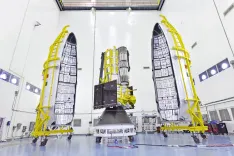Did Tata Power Sign a 120 MWh Battery Energy Storage Agreement with NHPC for Kerala?

Synopsis
Key Takeaways
- Tata Power's agreement with NHPC is a significant milestone.
- The project will enhance grid flexibility in Kerala.
- Supports India's renewable energy goals for 2030.
- First standalone BESS project for TPREL.
- Total renewable capacity now stands at approximately 10.9 GW.
Mumbai, July 18 (NationPress) Tata Power Renewable Energy Limited (TPREL), a subsidiary of The Tata Power Company Limited, has entered into its inaugural Battery Energy Storage Purchase Agreement with the government-owned power giant NHPC Limited.
This project, acquired through a competitive bidding process under NHPC's BESS tranche-I tender for the Kerala State Electricity Board Limited, entails the establishment of a 30 MW/120 MWh battery storage system at the 220 kV substation in Area code, Kerala, according to a statement released by Tata Power on Friday.
The initiative is crucial for meeting peak power demands, improving grid flexibility, and facilitating the seamless integration of renewable energy sources in Kerala.
This project is part of NHPC’s larger strategy to establish 125 MW/500 MWh of standalone battery storage capacity in Kerala, under a tariff-based competitive bidding framework supported by Viability Gap Funding, as revealed in the statement.
This initiative aligns with the Government of India’s ambition of reaching 500 GW of non-fossil fuel capacity by 2030.
Implemented under the guidelines of the Ministry of Power, the project will function under a 12-year BESPA. It is expected to be commissioned within 15 months, establishing storage as a pivotal enabler of round-the-clock renewable energy and enhanced grid resilience, the statement explained.
Besides this forthcoming initiative, TPREL already operates a combined Solar and BESS project at Rajnandgaon in Chhattisgarh. This project includes a 100 MW solar photovoltaic facility integrated with a 120 MWh utility-scale BESS, developed under an EPC contract awarded by the Solar Energy Corporation of India Limited.
This collaboration with NHPC signifies TPREL’s first achievement in the standalone BESS sector.
With this new addition, TPREL's total renewable capacity now amounts to approximately 10.9 GW, inclusive of 5.6 GW of operational projects, which consist of 4.6 GW of solar and 1 GW of wind, alongside 5.3 GW at various stages of development, as stated by the company.








